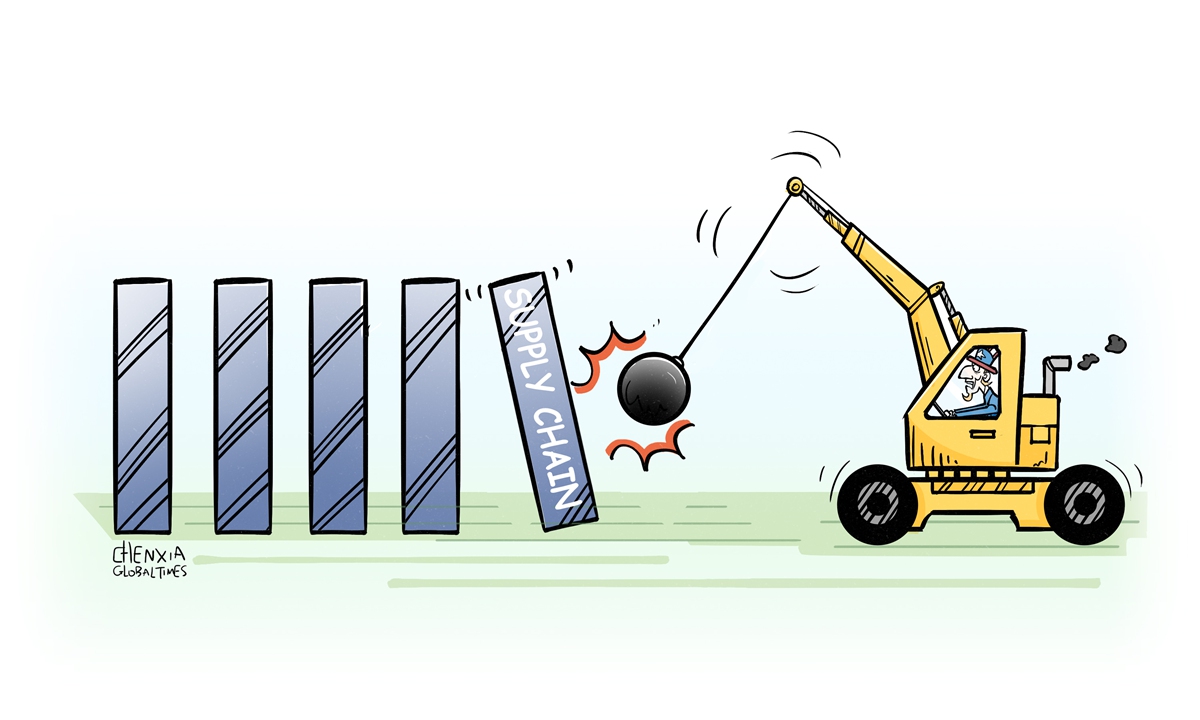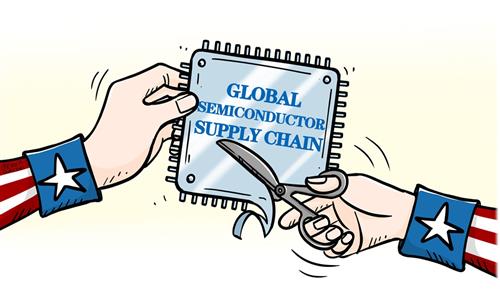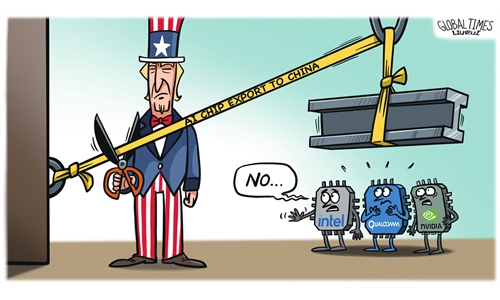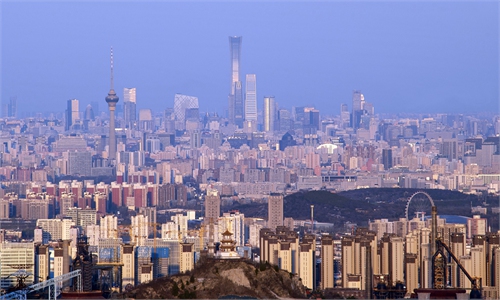
Illustration: Chen Xia/Global Times
As the US increasingly places an emphasis on the so-called resilience of its supply chains, Washington has tried to make critical minerals a new battleground for big powers. The US is the main culprit for disrupting global supply chains, yet it is attempting to fling mud at China. India should remain sober to avoid becoming cannon fodder in Washington's geopolitical game.Indian Prime Minister Narendra Modi said on Sunday there is the risk of a "new model of colonialism" if countries with critical minerals do not regard custodianship as a "global responsibility," Reuters reported. Critical materials and rare earths "are abundant in some places and not present at all in others, but all of humankind needs them," Modi said.
Modi did not mention China, but some Western and Indian media outlets think China should be involved. They said that "China accounted for 70 percent of world mine production of rare earths in 2022."
However, although China is the world's largest producer of rare earths, it has never abused its power. China has always taken a positive, serious and responsible attitude in properly developing its rare-earth resources. On the contrary, it is Washington that has taken incredibly aggressive actions in disrupting the global supply chains.
In June 2022, the US and some of its economic partners announced the establishment of the Minerals Security Partnership (MSP), an initiative the White House said would "bolster critical mineral supply chains." In December 2022, the US and some other Western countries also announced an alliance to produce and buy critical minerals from countries with "stronger environmental and labor standards," a move that Western media outlets like Reuters believe could reduce business with China.
The US may want to set up a critical mineral alliance to help itself win the global competition, but US' efforts to form cliques and small circles can hardly provide any impetus or vitality to its economy. On the contrary, these American policies will backfire by creating confrontation and disrupting global supply chains.
Western public opinion has always been keen to smear China with conspiracy theories, which include "neocolonialism." Yet, while the US intentionally accuses China, it is Washington that is aggravating the damage to global supply chains through arbitrary and reckless actions.
Critical minerals provide the building blocks for many modern technologies. These minerals - such as rare-earth elements, lithium and cobalt - are key inputs in clean-energy technologies like batteries, electric vehicles, wind turbines and solar panels. However, the US is heavily reliant on imports of certain critical minerals that are essential to its security and economic prosperity.
Amid increasingly fierce global competition for critical minerals, the US is attempting to politicize critical minerals and use its geopolitical influence to form cliques and small circles to ensure the security of its mineral supply. In this process, Washington has ignored the rules, viewing global critical mineral competition through geopolitical lens, and disregarding its partners and allies out of raw self-interest. If there is really a risk of a "new model of colonialism," it will be created by the US.
In June, India became a member of the US-led MSP. The announcement was part of a joint statement by Modi and US President Joe Biden during the former's visit to the US. For the foreseeable future, the US is likely to continue to increase its control over global critical mineral supplies, and we hope India won't become a victim of the US greed for economic hegemony.
Despite Western publicity over the so-called China's neocolonialism in Africa, African nations don't buy it because they can feel China's sincerity in the equal and win-win cooperation.
Similarly, falling into Washington's narrative trap isn't in line with the interests of India. As the two largest emerging economies, China and India share great cooperation potential in various areas including critical minerals, which should be further explored.
The author is a reporter with the Global Times. bizopinion@globaltimes.com.cn




